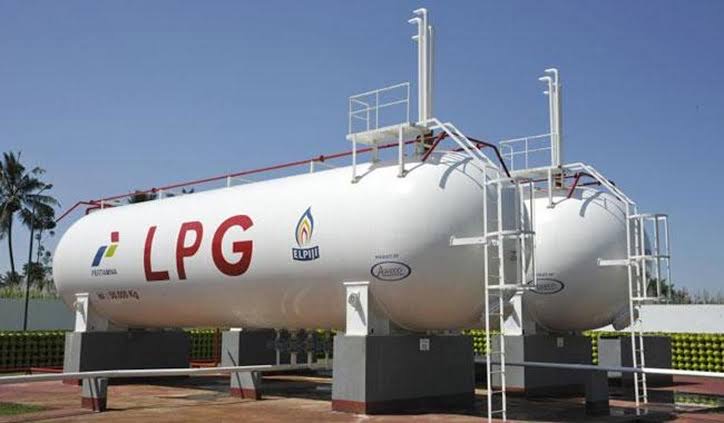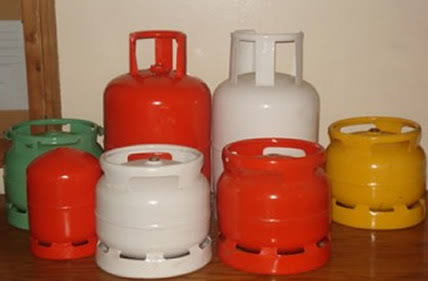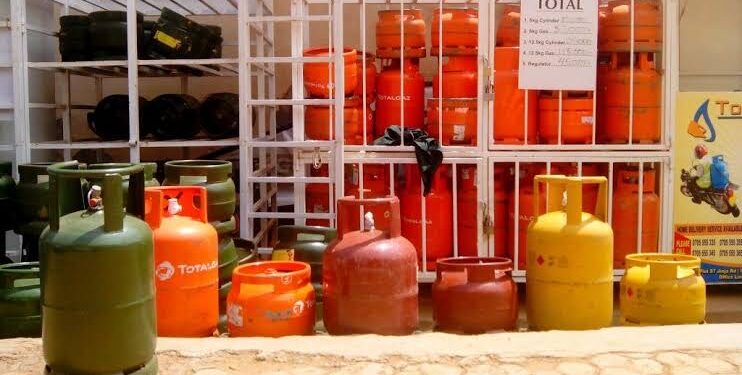Nigerians are reeling from new economic hardship as the price of liquefied petroleum gas (LPG), also known as cooking gas, rises to 1,250 naira per kilogram.
The steep increase, which was less than 500 naira in 2018, has sent shockwaves through households across the country, putting an additional strain on an already strained population.
Frustration and anger are simmering around the dinner table as citizens in Africa’s most populous country deal with the rising cost of living. “How can we cook?” lamented Tosin Adelakun, a Lagos resident who works multiple jobs to feed his family. “Everything is going up, but our salaries stay the same. Now even cooking basic meals is becoming a luxury.”

For many Nigerians who rely on LPG for their daily cooking, this price hike is not just an annoyance but a shock to the gut.
According to a Reporters’ survey, the average retail price of cooking gas across Nigeria, according to the Nigerian Bureau of Statistics (NBS), is currently N6,966.03 per 5kg refill, a 71.23 percent increase since June 2023, reflecting the plight of the people. It is even worse.
Many consumers are adjusting their budgets to cover the higher costs. Some are turning to alternative cooking methods while others are cutting back on other expenses. The situation is adding to the pressure on households already struggling with the rising cost of living. “It’s becoming unbearable to cook with gas now,” said Osuji Chidinma, a businessman from Iyana Iba district in Lagos. “We are now substituting with charcoal and firewood.”
Like Chidinma, many Nigerians who can’t afford the product due to rising prices are turning to dirty alternatives like firewood and charcoal.
But this is harmful to the health of many Nigerians, especially women and children. According to a 2021 report, more than 90,000 women and children die from cooking smoke every year in the country.

Three years later, the number of victims has risen to 98,000 women and children, reflecting poverty and lack of access, said Emmanuel Uwandu, managing director and chief executive officer of Gas360. Uwandu said, “Cooking with firewood, and charcoal is equivalent to smoking 20 packages of cigarettes. For an average smoker, that is too much. But this is what women in Nigeria have to deal with daily.
“In Nigeria, 98,000 women die annually from the use of firewood and charcoal, and across the 774 local governments that translates to about 2,700 deaths annually.
“In Niger Delta alone, 21,000 women die from the use of firewood and charcoal. If we bring that home to Akwa Ibom State’s 31 local governments, 75 women die every year from the use of firewood and charcoal.”
According to the NBS (2020) assessment, only 10.5 percent of Nigerian households rely on cooking gas while 68.3 percent use solid biomass. About 19.8 percent use kerosene and only 1 percent use electricity for cooking.
The Nigerian Association of Liquefied Petroleum Gas Distributors (NALPGAM) said the increase in gas prices is mainly linked to exchange rate issues as the naira continues to struggle against the dollar.
The President of NALPGAM, Olatunbosun Oladapo, told Journalists that the main reason for the increase in retail price of cooking gas is exchange rate issues.
He said the government is working to ensure the supply of the product. He, however, called on the Federal Government to address the challenge of the devaluation of the Naira as it has led to the inflated prices of the commodity.
“The situation is very unfortunate because prices are going higher and Nigerian consumers are passing through very difficult times because they can no longer afford gas and are now depending on firewood, charcoal, and sawdust for cooking,” he said.
The President called on the government to address the exchange issue and ease the suffering of the masses through palliative measures and reduction in taxes and duties.
Furthermore, Oladapo said Nigeria LNG should strive to meet domestic needs rather than exporting to cushion the impact on the masses while urging marketers with the capacity to buy the product locally to reduce prices with the consumer in mind.


































